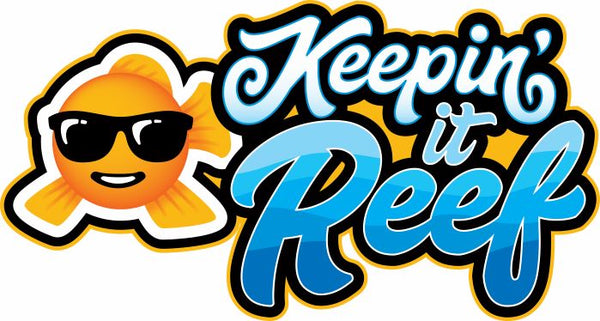Maintaining a saltwater reef tank can be both a rewarding and challenging endeavor. The effort you put into maintaining your reef tank is pretty proportional to what you decide to put in it. The complexity and beauty of your tank will depend on your choice of inhabitants, from fish-only setups to intricate coral reefs. Let’s explore how the level of difficulty in maintaining a saltwater reef tank varies based on your choices and commitment.
Starting Simple: Fish-Only Saltwater Tanks
For beginners, starting with a fish-only saltwater tank is a great way to get acquainted with the basics of marine aquarium maintenance. These setups are generally less demanding compared to reef tanks that include corals. Here’s why:
- Water Quality Management: While maintaining water quality is essential for any aquarium, fish-only tanks are more forgiving. Regular testing and water changes are necessary, but the absence of corals means you don’t have to monitor as many parameters.
- Equipment Needs: Basic equipment such as a good filtration system, a heater, and proper lighting will suffice. You won’t need the specialized lighting required for coral growth.
- Stocking Choices: You can choose hardy fish species that are less sensitive to water fluctuations, making it easier to manage and maintain the tank.
However, even a fish-only tank requires dedication. Regular feeding, cleaning, and monitoring of water parameters like salinity, pH, ammonia, nitrite, and nitrate levels are crucial to keep your fish healthy and thriving.
Elevating the Challenge: Adding Corals
As you gain experience and confidence, you might be tempted to add corals to your tank. This transition marks a significant step up in the complexity and maintenance required. Corals, while stunning and fascinating, are much more sensitive to their environment. Here’s what you need to consider:
- Types of Corals: There are easier, and more challenging corals to keep in your reef tank. Corals like leathers and Euphyllia are forgiving and tolerant, while SPS corals like Acropora have more strict care requirements.
- Water Parameters: Corals demand pristine water conditions. You'll need to maintain stable levels of calcium, alkalinity, and magnesium. Trace elements like iodine and strontium also become important. This requires more frequent and precise water testing.
- Lighting and Flow: Corals require specific lighting conditions to thrive, often mimicking natural sunlight in terms of intensity and spectrum. You’ll need high-quality LED or metal halide lighting systems. Additionally, corals benefit from water movement, which means investing in powerheads or wavemakers to create a suitable flow within the tank.
- Feeding: While some corals get nutrients through photosynthesis (thanks to their symbiotic relationship with zooxanthellae algae), others may require direct feeding of specialized foods.
- Compatibility and Placement: Not all corals can coexist peacefully. Some corals may release toxins or engage in chemical warfare, which can harm their neighbors. Careful planning and placement are necessary to create a harmonious environment.
Taking It to the Next Level: Complex Reef Ecosystems
For the advanced aquarist, creating a complex reef ecosystem with a variety of fish and corals represents the pinnacle of saltwater tank keeping. This setup not only involves meticulous care of water parameters but also a deep understanding of the interactions between different species.
- Advanced Equipment: You might need a protein skimmer, automated dosing systems for trace elements, and a refugium to cultivate beneficial algae and microorganisms.
- Regular Maintenance: Daily monitoring, frequent water changes, and constant attention to the health of your corals and fish become part of your routine. Automation can help here big time, but there is no substitute for a watchful eye and hands-on care.
- Problem-Solving: Issues like coral bleaching, disease outbreaks, or algae overgrowth can arise and require immediate attention and problem-solving skills. There are creative ways to address any issue, and learning how to handle and prevent these occurrences is part of the thrilling and educational journey of saltwater reef keeping.
Conclusion: The Reward is in the Effort
Maintaining a saltwater reef tank is as hard as you make it. A simpler fish-only setup is easier to manage, ideal for those new to the hobby. As you become more experienced, you can embrace the challenge of adding corals and creating a thriving reef ecosystem. The key to success lies in your dedication, willingness to learn, and passion for marine life.
In the end, the effort you put into maintaining your saltwater reef tank is rewarded by the stunning beauty and vibrant life it brings into your home. Whether you’re starting small or aiming for a complex reef, the journey is as fulfilling as the destination.
Visit our store in Littleton, Colorado, or reach out to us for advise and questions!

